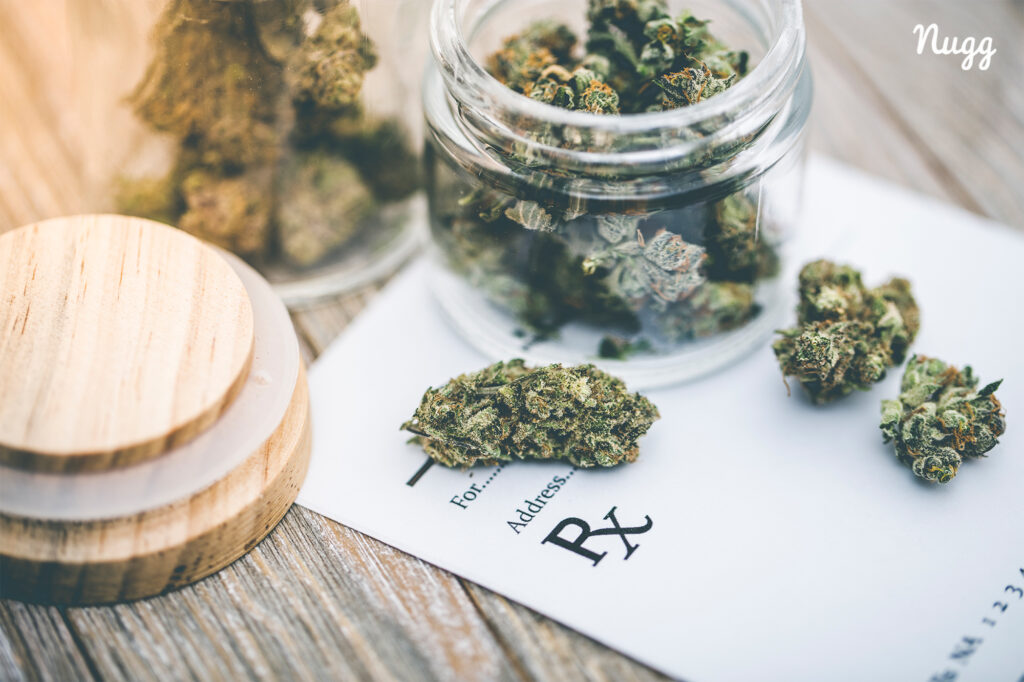
Nephrolithiasis, or kidney stones, occurs when hard, crystal-like objects build up in the kidney or ureter. The hard objects can vary in size and amount but are typically painful and may require medical intervention.
The kidneys play an essential role in filtering out waste from the body. Kidney stones are slightly more common in men, with 11% of men experiencing them, compared to 6% of women. There are four kinds of kidney stones: calcium oxalate, uric acid, cystine, and struvite. The main difference between these types is their chemical makeup.
Kidney stones are typically diagnosed through urine or blood tests and imaging. Several treatments, including surgery and shock waves, are commonly used to break up kidney stones.
What Can Cause Kidney Stones?
Kidney stones can be extremely painful, so knowing the various causes is important. You can help reduce the risk by speaking with your doctor about ways to stay hydrated and modify your diet.
Risk factors include:
- Dehydration
- Eating too much salt, sugar, or fructose
- High phosphate levels
- Genetic factors, such as a family history of kidney stones
Certain conditions and medications may also lead to the development of kidney stones:
- Obesity
- Chronic bowel inflammation
- Cystic kidney disease
- Gout
- Hypercalciuria
- Repeated UTIs
Signs & Symptoms of Kidney Stones
While tiny kidney stones may go unnoticed, larger stones can lead to painful or distressing symptoms. Most people begin experiencing symptoms when the kidney stone(s) cause irritation and inflammation.
Common symptoms include:
- Cloudy urine
- Fever
- Nausea
- Pink, red, and brown blood in your urine
- Sharp lower back or lower abdomen pain
If you’re experiencing any of these symptoms, consider contacting a medical provider to help provide a diagnosis and potential treatment options.
Can Cannabis Help Alleviate Symptoms of Kidney Stones?

Cannabis is not commonly recognized as a treatment for kidney stones; in fact, a study published in 2023 analyzed over 14000 survey responses and found that regular cannabis use was related to the risk of developing kidney stones in males.1 A case study published in 2023 on cannabinoid hyperemesis syndrome, a rare condition that may occur from long-term cannabis use, was associated with the development of kidney stones in a patient due to its potential to lead to dehydration from excess vomiting.2
Research has found that cannabinoids like THC may lead to lower urine output, as demonstrated in studies with MS patients. Other studies suggest cannabinoids may have a dose-dependent effect on the frequency of urination, with low doses promoting urine output and high doses decreasing it.3 Because the frequency of urination is something individuals with kidney stones may need to pay attention to, this can be an important thing to consider.
One of the most prominent aspects of dealing with kidney stones is coping with the pain. Because cannabinoids like CBD may be effective in lessening pain in some consumers, it’s an option for those looking to increase comfort. Likewise, cannabis has shown promise as an anti-inflammatory, which may help alleviate pain caused by kidney stones and potentially reduce the risk of those with inflammatory bowel disorders like IBS and IBD developing kidney stones.4
Some people become nauseous while experiencing kidney stones, which may be one of the reasons why some turn to cannabis to overcome the symptoms. Cannabinoids like CBD and CBDA, in particular, have demonstrated significant potential in fighting the onset of nausea.5
While cannabis may not eliminate kidney stones, it has shown promise in helping manage pain and nausea caused by the condition. However, long-term and heavy users with conditions that put individuals at risk for developing kidney stones may want to avoid high THC consumption.
Legality and Doctor’s Recommendation
To determine if your state considers kidney stones to be a qualifying condition for medical marijuana, check out our Laws & Regulations section for the medical cannabis rules for your state.
If you find that your state recognizes kidney stones as a qualifying medical condition, you can seek a doctor’s recommendation to register for your state’s medical marijuana program.
How NuggMD Can Help

NuggMD is the nation's leading medical marijuana technology platform, serving patients in over half the United States. We’ve connected over 1,300,000 patients with their new medical marijuana doctors face-to-face via our state-of-the-art telemedicine platform.
We believe that every human being has the right to explore the benefits of medical cannabis and are fully committed to helping each patient explore all of their options in their journey to wellness. For further information on whether you qualify for medical cannabis, select your state.
Resources
- Di X, Xiang L, Wang M, Wei X. Association between marijuana use and kidney stone: a cross-sectional study of NHANES 2009 to 2018. Frontiers in pharmacology. 2023;14. doi:https://doi.org/10.3389/fphar.2023.1214647 ↩︎
- Patel M, Sathiya Narayanan R, Peela AS. A Case of a Patient With Cannabis Hyperemesis Syndrome Along With Recurrent Nephrolithiasis. Cureus. 2023;15(4):e37182. Published 2023 Apr 5. doi:10.7759/cureus.37182 ↩︎
- Chopda GR, Vemuri VK, Sharma R, Thakur GA, Makriyannis A, Paronis CA. Diuretic effects of cannabinoid agonists in mice. Eur J Pharmacol. 2013;721(1-3):64-69. doi:10.1016/j.ejphar.2013.09.053 ↩︎
- Lowe H, Toyang N, Steele B, Bryant J, Ngwa W. The Endocannabinoid System: A Potential Target for the Treatment of Various Diseases. International Journal of Molecular Sciences. 2021; 22(17):9472. https://doi.org/10.3390/ijms22179472 ↩︎
- Rock EM, Sticht MA, Limebeer CL, Parker LA. Cannabinoid Regulation of Acute and Anticipatory Nausea. Cannabis and Cannabinoid Research. 2016;1(1):113-121. doi:https://doi.org/10.1089/can.2016.0006 ↩︎
The information in this article and any included images or charts are for educational purposes only. This information is neither a substitute for, nor does it replace, professional legal advice or medical advice, diagnosis, or treatment. If you have any concerns or questions about laws, regulations, or your health, you should always consult with an attorney, physician or other licensed professional.

